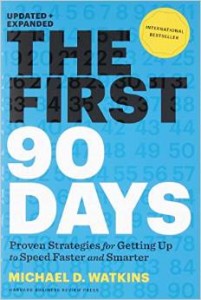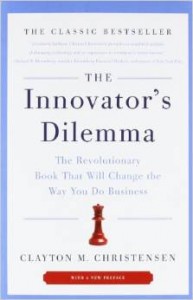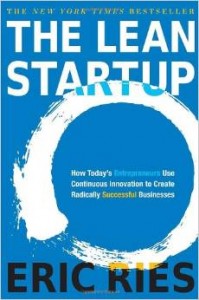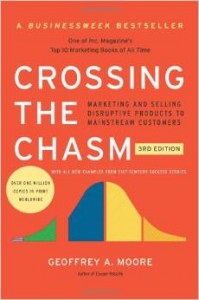 One thing I’ve noticed about being a software manager is that it’s a practice, not just a skill that is learned, like a new language or framework. One of the challenges with the position is that you rarely receive any feedback on your performance. I’ve reported to various CTO, CEO, and VP of Engineering roles over the years and have definitely noticed the lack of feedback. It’s up to you to be self aware, recognize your blindspots and weak areas, and constantly work to improve them. This requires a good deal of emotional intelligence.
One thing I’ve noticed about being a software manager is that it’s a practice, not just a skill that is learned, like a new language or framework. One of the challenges with the position is that you rarely receive any feedback on your performance. I’ve reported to various CTO, CEO, and VP of Engineering roles over the years and have definitely noticed the lack of feedback. It’s up to you to be self aware, recognize your blindspots and weak areas, and constantly work to improve them. This requires a good deal of emotional intelligence.
The new year provides a chance for reflection, to think about how we can improve as people. I’m always trying to think of how I can deliver more value in the office, what more can I do to help the team succeed? I’ve boiled it down to my top 5 areas where I need to improve on in 2016. Feel free to share yours in the comment section!
1. Be a Better Listener
This one sounds cliche, but being a good listener is probably the most important skill a good manager can have. I always have to remind myself to be in the present moment when listening to a coworker. Occasionally my mind will jump into problem solving mode, and I’ll start to zone out of the conversation. Or sometimes I’ll just get bored with what I’m hearing and start thinking about something more interesting.
This year I want to get better at listening. What is the other person really trying to say to me? I’ll try to remember to repeat back what I’m hearing, to make sure the other person is being understood, and to force myself to stay engaged. Also, I’ll try to see if there is any way I can help with whatever the other person’s problems are.
2. Give more feedback
I just got a new boss and noticed a technique he uses that has made a positive impression on me and I plan on using it more in the coming year. He gives LOTS of positive feedback, I mean a ton. He’ll quickly reply to an email with a quick ‘Thank You!’ or ‘Nice job!’. It only takes him 2 seconds, but I’ve noticed myself now craving to get that positive response. After receiving these for a couple weeks it finally hit me, I’m not giving my own team enough positive feedback!
As a manager you tend to see everything that is wrong and want to fix it. There is usually so much bad stuff happening, it’s easy to forget to acknowledge all the good things that are happening as well! I’ve already started to make a conscious effort to provide the team with more positive feedback, via email, 1×1, or in a group setting. I’ve noticed that I need to make a conscious effort to do this.
In addition to all the attaboy’s, it’s important to give corrective feedback as well. Also, it’s good to give this feedback immediately, don’t wait for your next 1×1. I think it’s fine to give this feedback via email/chat as well as in person. If your team knows they can get both good and bad feedback from their manager, they will trust you, and will feel more at ease knowing where they stand.
3. Clarify Team Goals
People want to know what the group goals are. What are the near and long term milestones? Luckily I work at a company where the founders clearly articulate the vision of the company, but how is my group helping to achieve that company vision?
Also, I will work to ensure everyone on my team knows what their priorities are. I will have them tell me what their priorities are, so I can hear it coming out of their own mouths. As they knock items off their list, I’ll work to give them feedback (see #2) on how they are doing.
4. Don’t get stressed
I tend to sweat the little things. I tend to over analyze and dwell on what my boss or a peer said in a meeting. I tend to get over competitive with my peers.
As a manager, you have visibility into so many things that are going wrong, it can be very easy to get stressed out. This year I’ll work to live in the present moment and not waste time thinking about the past. When things get overwhelming, I’ll work to prioritize, communicate them out, then execute.
5. Improve my technical skills
It’s so easy to get wrapped up in the day to day, meetings, email, etc. Before you know it, months or years have gone by and you haven’t written any code or learned any new technical skills.
I try to mitigate this by first taking on jobs that are in new technical areas. This forces me to learn some new technologies so I can at least be conversant. However, once I have just enough knowledge, I tend to put it on the backburner and just focus on getting work done.
This year I’m going to work to be more hands on. I’ll try to tackle a low priority coding project at work, something that has been bothering the team, but is off the critical path.
Honorable mention, #6, work on this blog some more. 🙂 These are my top 5 areas that I need to work on, what are yours? Feel free to shoot me an email with feedback and also please join the mailing list to receive updates.








